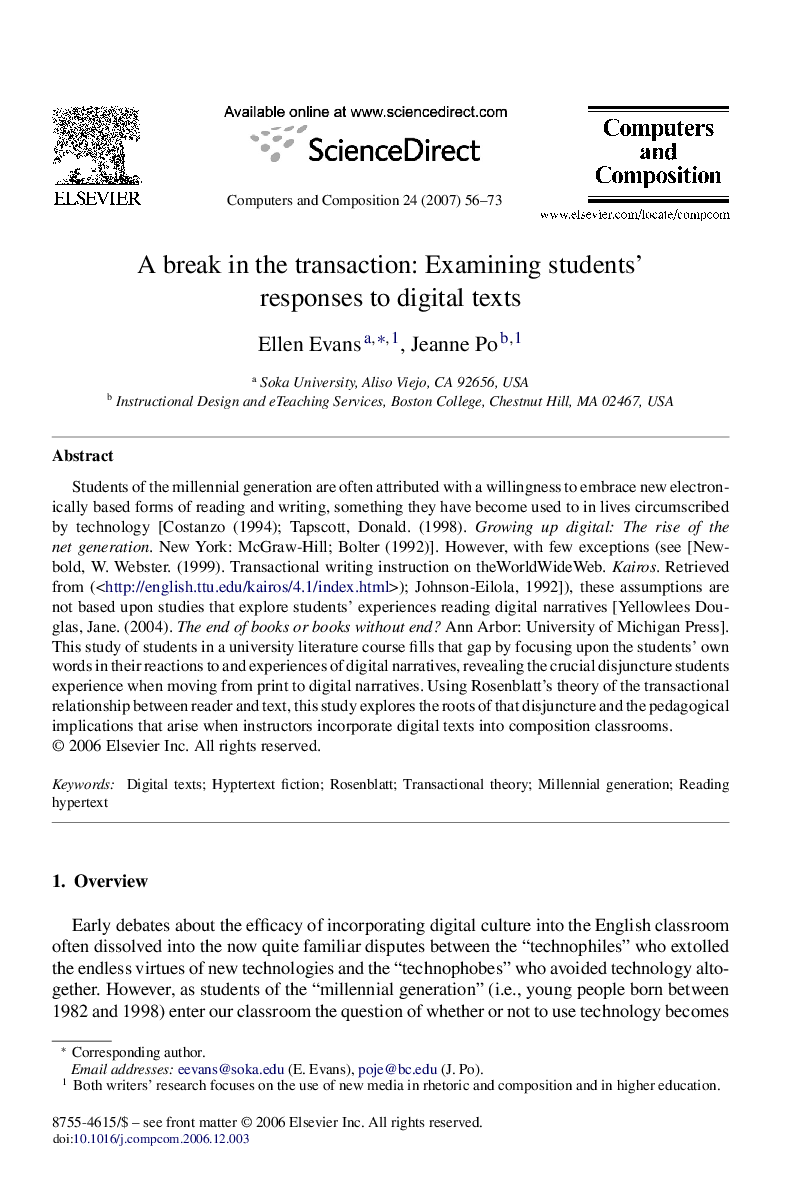| Article ID | Journal | Published Year | Pages | File Type |
|---|---|---|---|---|
| 348097 | Computers and Composition | 2007 | 18 Pages |
Students of the millennial generation are often attributed with a willingness to embrace new electronically based forms of reading and writing, something they have become used to in lives circumscribed by technology [Costanzo (1994); Tapscott, Donald. (1998). Growing up digital: The rise of the net generation. New York: McGraw-Hill; Bolter (1992)]. However, with few exceptions (see [Newbold, W. Webster. (1999). Transactional writing instruction on theWorldWideWeb. Kairos. Retrieved from (
